Vocabulary enhancement Normal Reading Fiction Worksheets for Ages 4-5
6 filtered results
-
From - To
Unlock your child's potential with our engaging Vocabulary Enhancement Reading Fiction Worksheets designed for ages 4-5. Focused on introducing young learners to new words through captivating stories, these worksheets enhance reading skills and foster a love of literature. Each worksheet is crafted to boost vocabulary, comprehension, and critical thinking by presenting age-appropriate fiction in a fun, interactive manner. Help your child develop a strong foundation in reading and language arts with our expertly designed resources. Perfect for home or classroom use, these worksheets support early literacy and pave the way for academic success. Explore and download today!
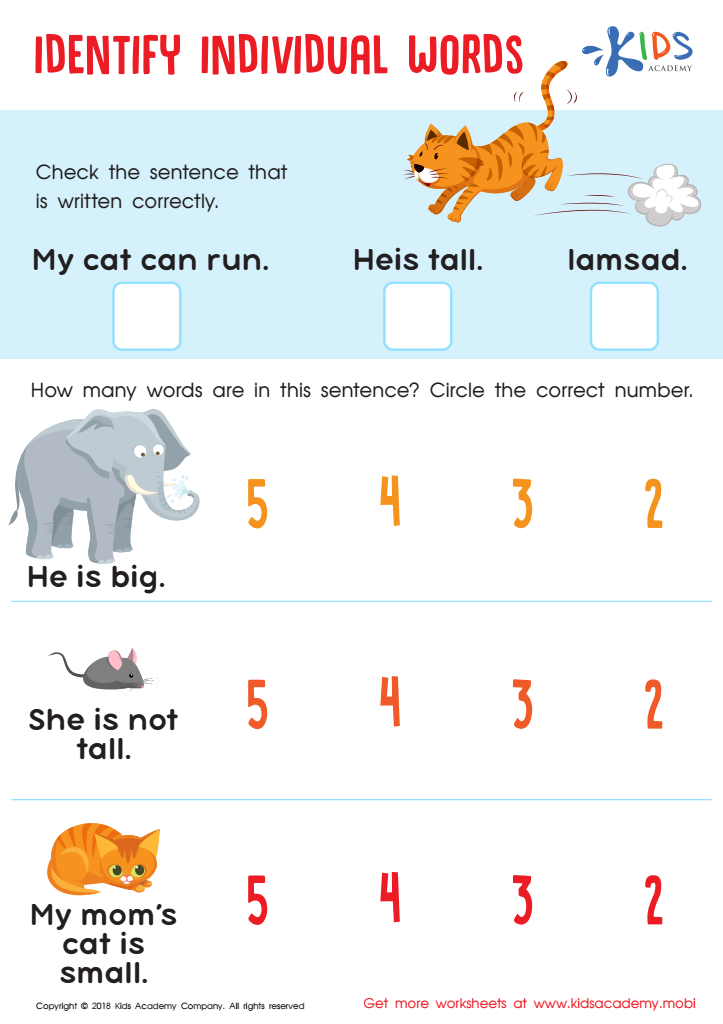

Identify Individual Words Worksheet
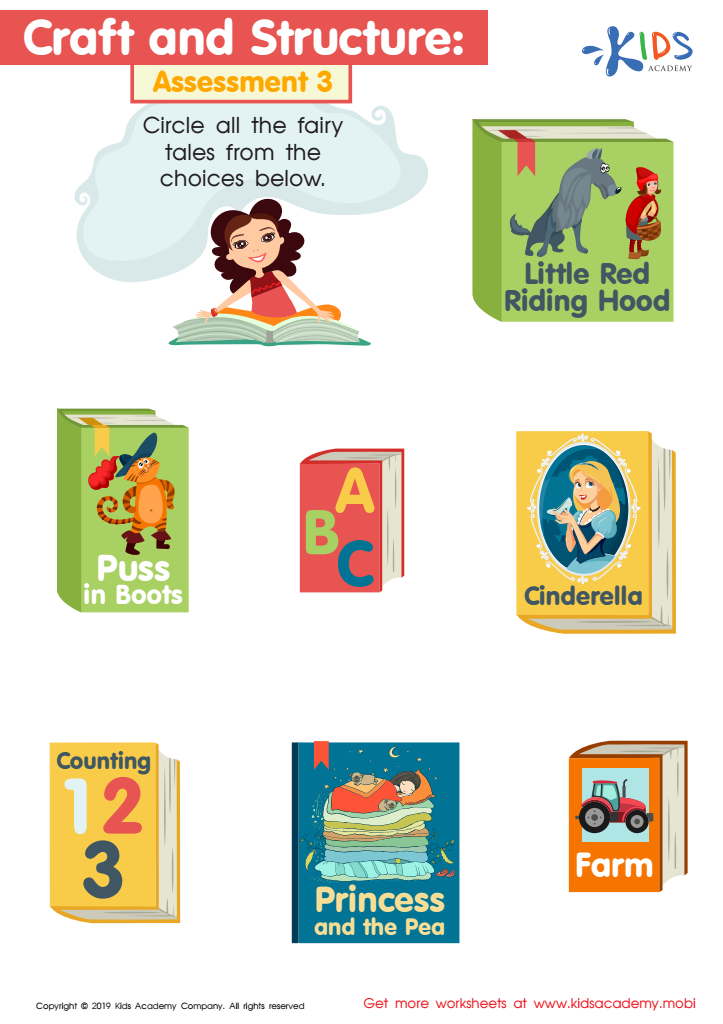

Craft and Structure: Assessment 3 Worksheet
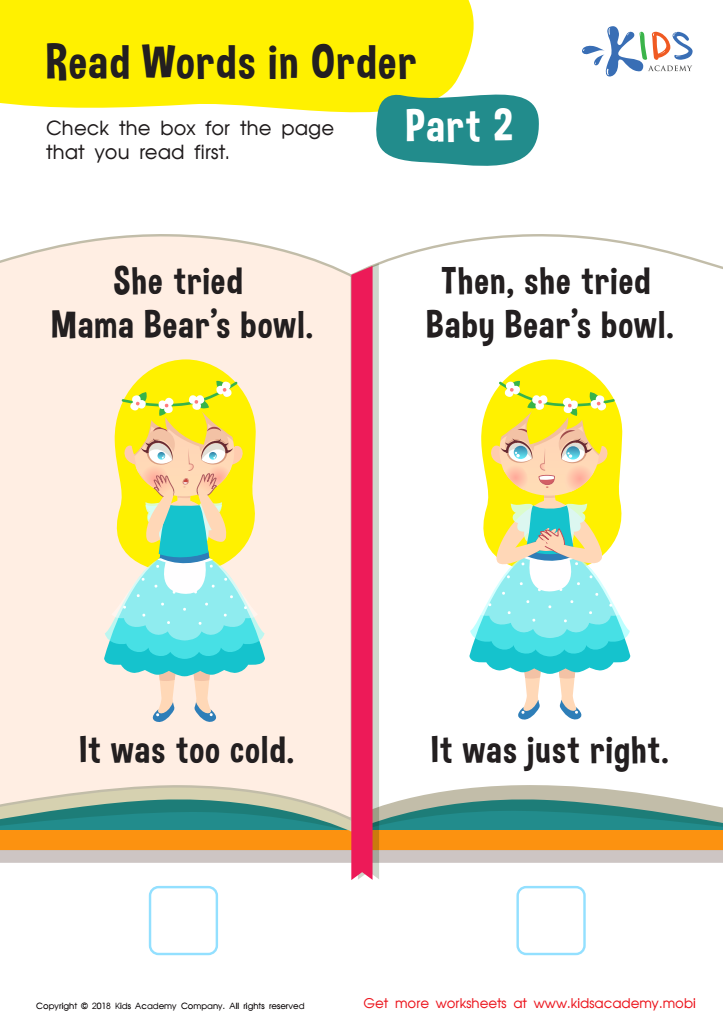

Read Words Order Part 2 Worksheet
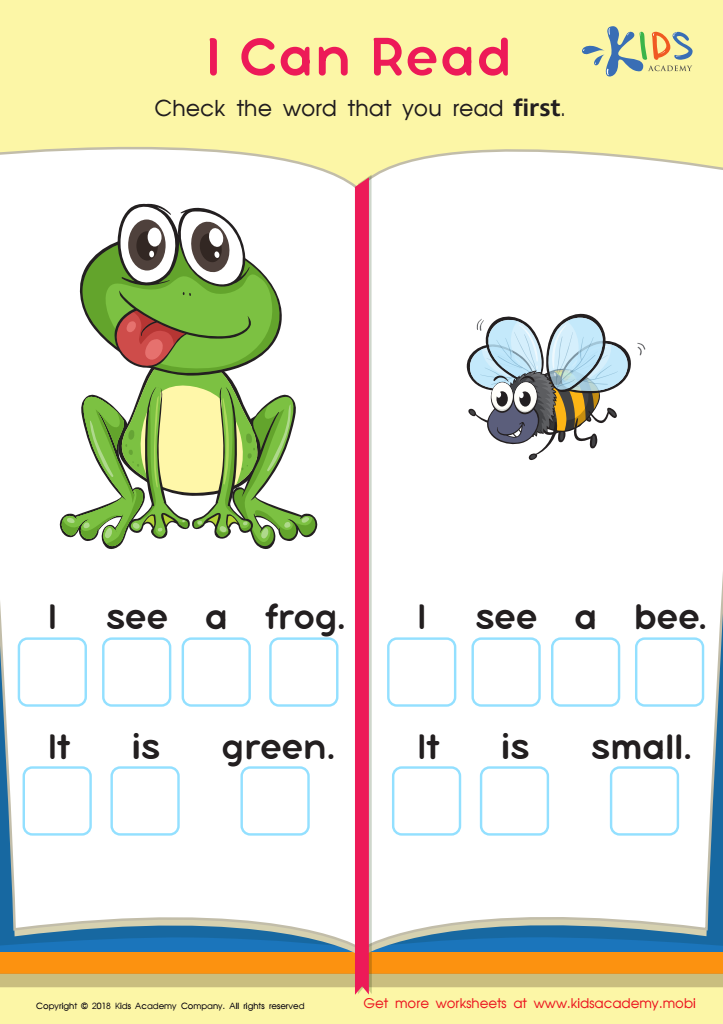

I Can Read Worksheet
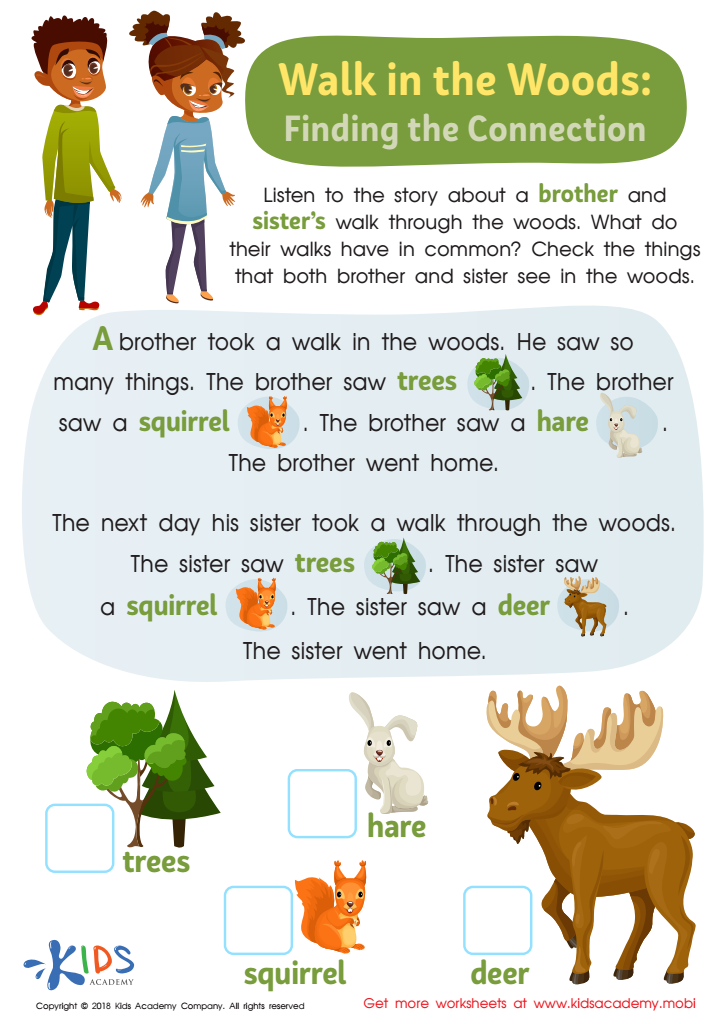

Walk In the Woods: Finding Connections Worksheet
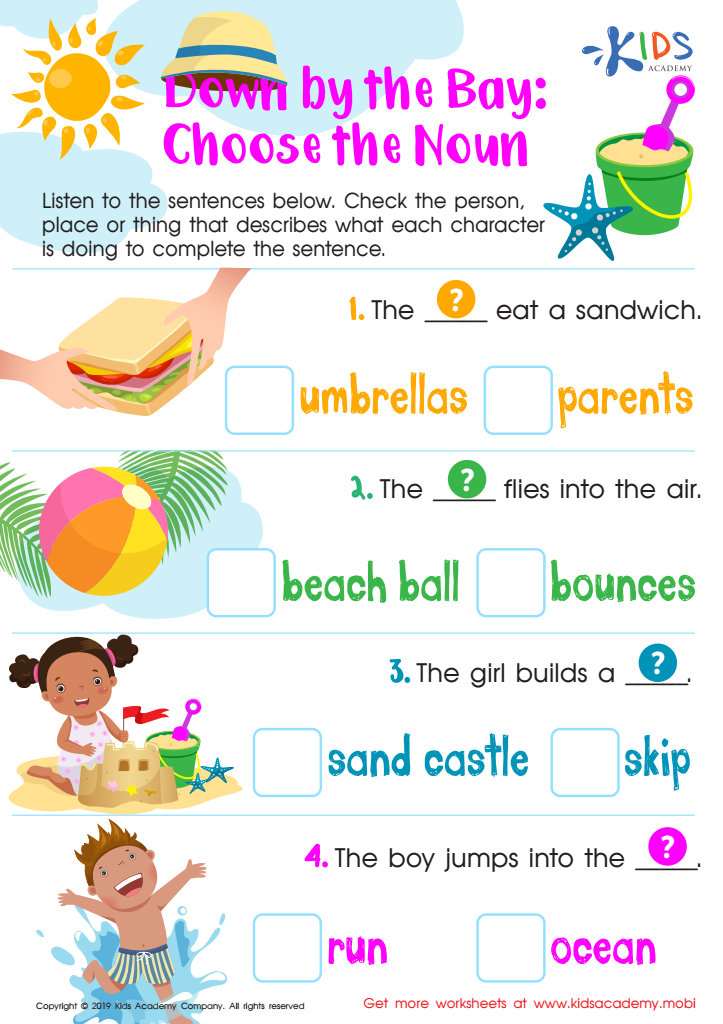

Down by the Bay: Choose the Noun Worksheet
Vocabulary enhancement through normal reading fiction in ages 4-5 is vital for a child's cognitive and social development. During these formative years, children's brains are exceptionally receptive to language and new concepts. Introducing them to a broad range of vocabulary through engaging and imaginative stories expands their language skills, comprehension, and critical thinking abilities. Enhanced vocabulary aids in expressing thoughts more clearly and understanding complex instructions and concepts.
Reading fiction also stimulates imagination and creativity. When children encounter new words within a story, they learn them in context, making it easier to understand and remember these words compared to rote learning. Fictional stories often include diverse characters, settings, and situations, which exposes children to various social scenarios, teaching empathy and emotional intelligence through indirect learning.
Moreover, early literacy and a rich vocabulary are foundational to academic success. Children with better vocabularies find it easier to grasp new subjects and excel in reading and writing tasks as they progress in their education. Creating a love for reading early on tends to foster lifelong learning and curiosity. Thus, parents and teachers should recognize the importance of vocabulary enhancement through reading fiction for young children to instill key skills that will support their overall growth and future learning endeavors.

 Assign to My Students
Assign to My Students




















